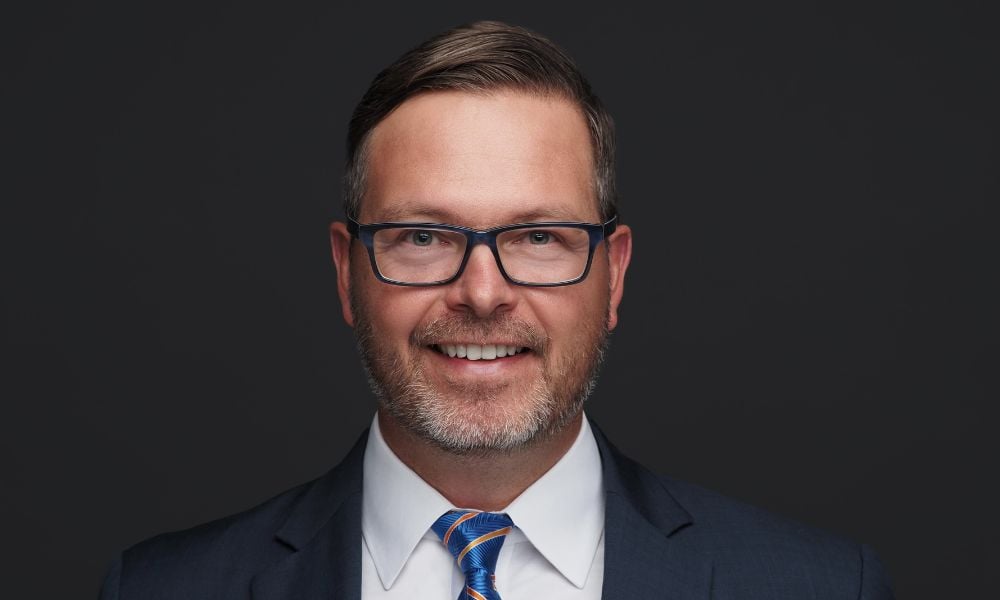Colin Andrews calls for 'overarching strategy' that gives advisors the right tools

During his MBA at Royal Roads University in Victoria, BC, Colin Andrews wrote a paper on changes the industry could make to make things better for advisors. Now 20 years into his career, Andrews mentors current students in the same program at his alma mater as well as younger advisors at his firm, and while motivated to help up-and-comers improve the experience for the end user — the client — a major driver is also “to improve the experience for the people in my chair.”
“There’s a very low barrier of entry to our industry and as a result there are a lot of variations of experience that clients get, and we could all do a better job,” says Andrews, senior portfolio manager, senior wealth advisor, and business leader for the CM Group.
“There needs to be an overarching strategy that gives people the right tools. The emphasis is too often on things like revenue, and it could be on better metrics like net promotor scores or other forms of KPIs that show value.”
When Andrews is out with his children and runs into a client, he doesn’t share who the person is, but it’s very clear very soon that he knows that person really well. Sometimes his children ask how they know each other, and Andrews tells them “we’re part of a little club, a secret society, and I leave it at that.” For the younger group, the problem is there are so many different avenues to explore and “they just don’t know what they don’t know.” So Andrews keeps it brass tacks. He often thinks of the tight relationships that develop in the industry between financial professionals and their clients and makes a point to impart on his mentees — and at times remind himself about — the gravity of that: whatever role they choose, this is a career where you can really make a difference for people.
Despite the years he’s been doing this, Andrews still feels like a newcomer in large part because of his belief in ongoing education, which also factors into his mentorship. He just finished the Certified Investment Manager Analyst designation — “I have 14 letters after my name now which is kind of crazy,” he laughs — through the University of Chicago, which he considers the epicentre of finance where it all began.
“I was reminded of the things I knew in the past and how important they were to understand, so I get to take the things I learned and apply it on a day-to-day basis. I take the things I learned when I did my MBA and apply it with my team daily. The important part isn’t just taking a bunch of designations it’s how do you apply it? Everything I’ve done has been extremely relevant.”
As he approaches 50, Andrews doesn’t see too many more designations in his future, but that doesn’t mean he’ll stop learning. He plans to keep up with various topics of interest, such as behavioral finance which is “fascinating stuff, and you’re surrounded by it,” he says. Why people make decisions they make and why they made them when they did, being able to explain to somebody why things seemed obvious when they weren’t, and also being able to help people make better decisions in the future knowing what biases impact them is huge and becoming more and more prevalent. The last US president, for example, exemplifies the concept of self-attribution which is when things are going well, you take all the credit and the minute things go against you, you cascade the blame. This happens in the investment world all the time, where a fund manager has a great year and it’s all skill, then they have a bad year and it's out of their hands. Tying this together with his advice to remain humble, Andrews stresses to his mentees that markets are extremely complex.
“I watched the Madoff series on Netflix, and it’s fascinating to me because I was part of the market when it was going down 50% and that hedge fund came out as a Ponzi scheme,” Andrews says. “The amount of fear that was around us all the time was hard to take, but there were some really good lessons that came out of there for me that I share with the younger people still: there’s no way you’re smarter than the market, there are way too many moving parts. You can’t take responsibility for the wins, and you can’t take responsibility for the losses.”



